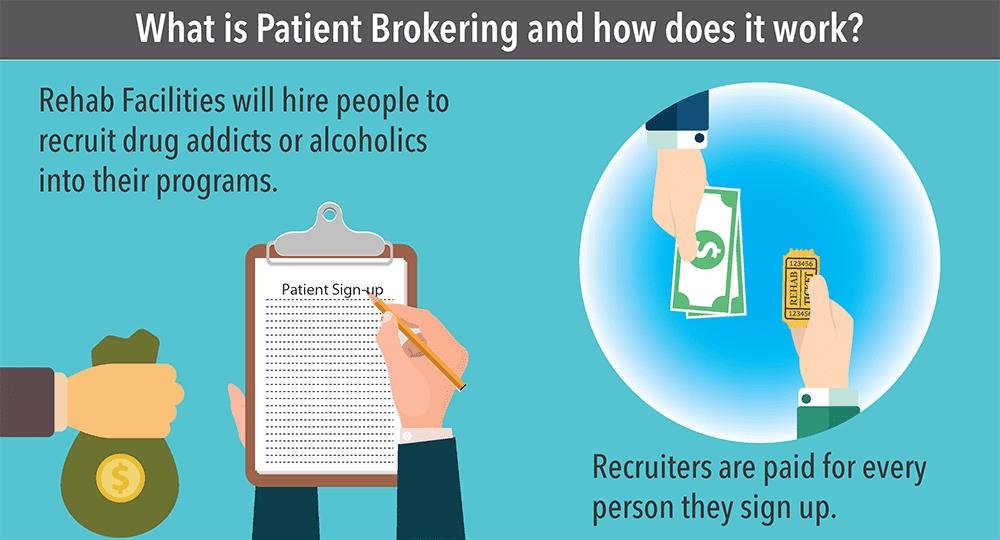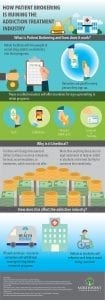Patient brokering is ruining the addiction treatment industry, even though many people have not even heard of the practice. If that is the case, take the time to read through this post to understand how patient brokering works, what to look for, and what the alternatives to this approach are. While there may be laws against patient brokering, the sad fact is that some corrupt individuals will continue to try to make extra money at the expense of those they are supposed to help in the first place. And the practice of patient brokering in the addiction treatment industry is on the rise. This development is particularly troubling given the fact that the United States is arguably in the middle of the most deadly opioid epidemic in history. “Opioid abuse is a serious public health issue. Drug overdose deaths are the leading cause of injury death in the United States. Heroin use has increased across the United States among men and women, most age groups, and all income levels. As heroin use has increased, so have heroin-related overdose deaths. States play a central role in prevention, treatment, and recovery efforts for this growing epidemic.” ~ U.S. Department of Health and Human Services Despite this troubling reality, some individuals and addiction treatment companies have used the opioid epidemic described above as a means of exploitation. Instead of providing the best treatment possible, some drug and alcohol treatment centers have instead turned to patient brokering to make money. In simple terms, patient brokering means paying individuals or outside companies to “recruit” drug addicts with certain types of health insurance into a treatment program with cash and material incentives. These so-called addiction treatment centers are then able to collect a hefty fee from insurance companies just for the drug testing stage, without necessarily following up with their clients in order to provide the treatment and care that they need in order to recover from addiction altogether. This practice is not only unethical but also illegal. Continue reading to learn why, and what is being done about it.
What is Patient Brokering, and Why is it Unethical?
The racket known as patient brokering stems from the fact that many health insurance plans cover drug testing as an essential service, with a very low deductible. While this is inherently a good thing, some sober living homes and addiction treatment facilities have taken advantage of this coverage. These centers hire people to essentially recruit drug addicts and alcoholics into their programs, offering everything from low rent to prepaid debit cards as incentives for participating. Those looking to recover from addiction are often eager to take advantage of these incentives. However, these same programs rarely provide the type of treatment that addicts need to fully recover and avoid relapse. While insurance companies have begun responding to this corruption by refusing to reimburse treatment centers, this has a detrimental impact on the addiction treatment center as a whole. Essentially, it makes it harder for ethical addiction treatment centers to provide high quality treatment. 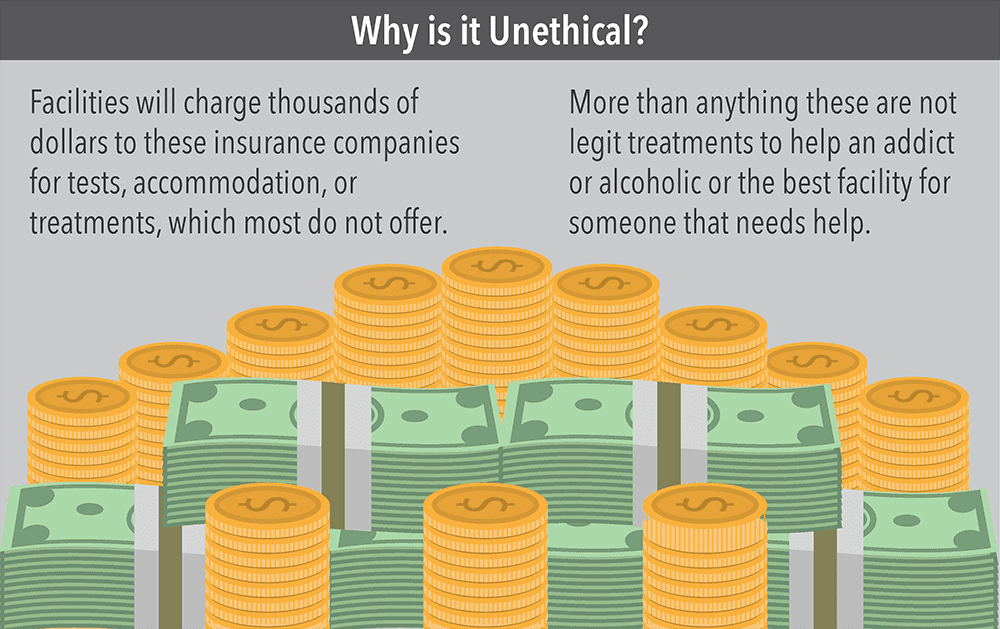
Patient Brokering in Practice: A Case Study from Florida
Judging from recent news coming out of the state of Florida, patient brokering is a particularly damaging issue for the addiction treatment industry in that state. The prominence of the issue is caused, at least in part, but the high number of addiction treatment facilities in the state – particularly in Palm Beach County, in the south of the state.
“The young addicts flocking to South Florida can be spotted easily. Some just relapsed, walking hangdog down the street with their luggage in tow. Or they gather smoking cigarettes in front of 12-step meetings, at favored coffee shops or the Western Union at the Wal-Mart – waiting in the parking lot for cash wired from Mom and Dad to arrive. For the junkie hunters, they make easy marks. Each recovering addict with a health insurance policy they can nab for a sober home can net these so-called body brokers up to $500. They offer addicts free housing [and] transportation. If you are lucky an Xbox or cold cash will be offered. For others, there is a promise the addict can keep using drugs. This is patient brokering. It’s highly illegal. And it is Palm Beach County’s $10 billion recovery industry’s dirty little secret, an infected wound on a growing community of addicts struggling to heal.”
~ John Pacenti, Palm Beach Post
The detailed description of what patient brokering looks like in practice goes a long way to showing just how reprehensible the practice is. In fact, the headline for that news story calls the practice a “festering wound” for the recovery community. Those addicted to drugs and other substances are already victims of a vicious mental disease. Patient brokering makes them victims two times over, exploiting their drug dependence for financial gain. There is no two ways about it: patient brokering is ruining the addiction treatment industry, plain and simple. The practice of exploitation described above can easily mar the good name, the genuine concern, and the high-quality care of many addiction treatment facilities across the country. 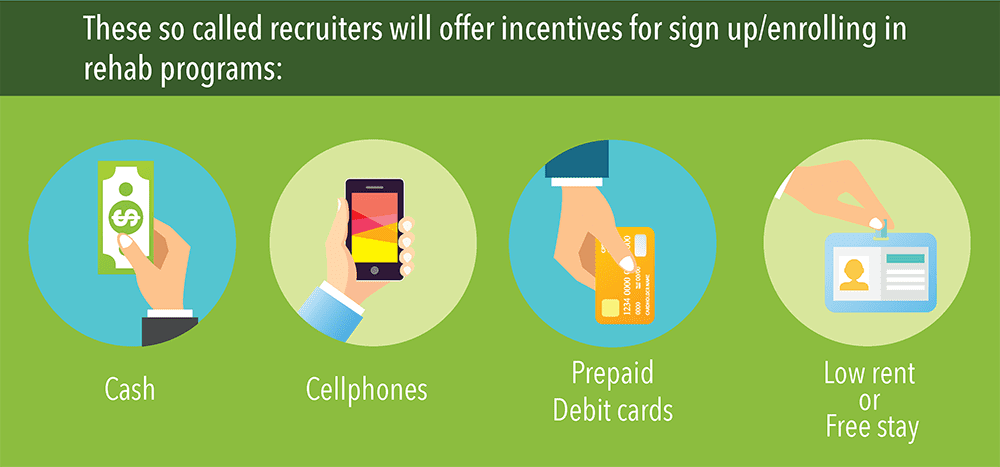
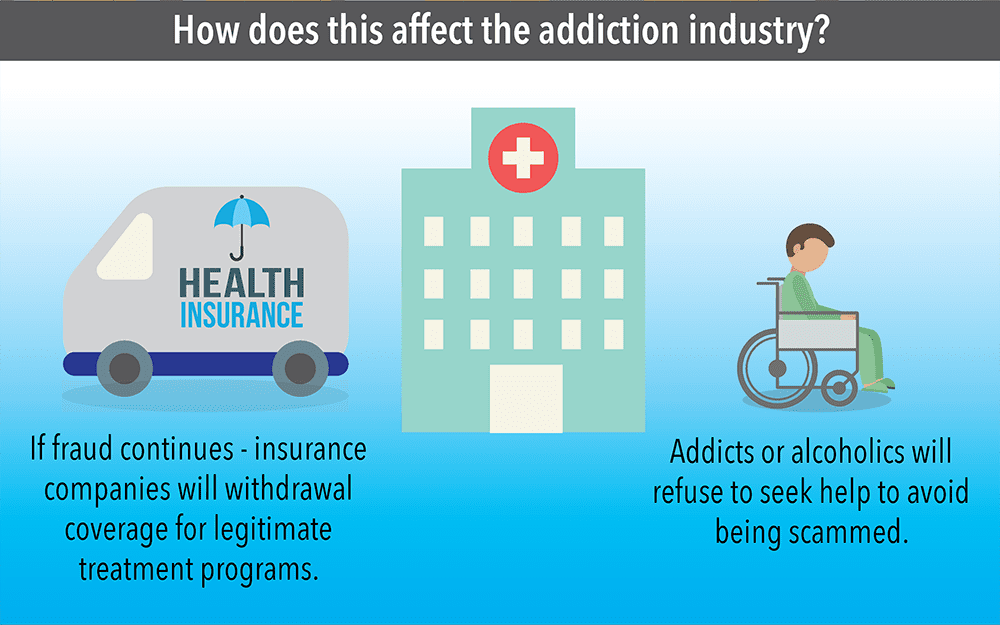
View Sources:
Christine Stapleton. (2017, February). Drug Treatment CEO Arrested on 93 Counts of Patient Brokering John Pacenti. (2016, October). Patient Brokering: A Festering Wound for Recovery Community US Department of Health and Human Services. (2017, April). The U.S. Opioid Epidemic


